5 Essential Tips To Nourish and Protect Your Heart
Your heart is the powerhouse of your body, tirelessly pumping blood and delivering oxygen and nutrients to every cell. Yet, in our fast-paced lives, it's easy to overlook the importance of heart health until problems arise.
However, taking care of your heart doesn't have to be complicated or time-consuming, and one of the things that can make the biggest difference is your nutrition.
Here are 5 simple things you can do to support your heart through the power of food:
(1) CUT BACK ON PROCESSED FOODS AND ADDED SUGARS
Processed foods and added sugar are both linked to inflammation, which is one of the key contributing factors to heart disease.
For example, research shows that consuming 25% or more of daily calories from added sugar is associated with a 175% higher risk of death due to cardiovascular disease, compared to intakes of less than 10% (Yang et al., 2014).
Unfortunately, there’s often confusion about what exactly processed foods are, and what constitutes added sugar.
For example, most wouldn’t consider white rice or store-bought fruit yogurt as processed foods, but in reality they are just that. If you too are not quite sure about the distinction between processed and whole foods, take a look at THIS HANDOUT that explains both categories in a simple way.
For added sugar, keep in mind that this includes any sugar that you add to your drinks or foods (e.g. coffee, tea, morning porridge, etc.), as well as sugar that has been added to packaged foods by food producers.
Identifying the latter is not always straightforward, especially since food companies today use over 60 different names for added sugar in packaged foods.
This is why it’s crucial to always read the food label and know what the most common names for added sugar are. Here’s a free LIST OF 20+ MOST COMMON NAMES FOR ADDED SUGAR to help you get started.
(2) LOVE YOUR LYSINE
Lysine is an essential amino acid that acts like a kind of ‘arterial teflon’. As such, it helps stop the sticky molecules adhering to the arterial walls and forming plaques and therefore maintain healthy blood vessels.
Foods rich in lysine to include in your diet: beans, lentils, chickpeas, green peas and sardines.
(3) CHOSE YOUR FATS WISELY
Your body absolutely needs dietary fat to stay healthy and function well.
But - not all fat is created equal and the unhealthy kind can contribute to inflammation and undermine your cardiovascular health.
Key things to keep in mind:
When you’re buying packaged foods, always read the ingredients’ list to understand which types of fat/oil do they contain. Avoid especially palm oil, hydrogenated fats, soybean oil, safflower oil, corn oil, sesame and refined sunflower oil. Keep in mind that some of these (e.g. palm oil), are often present even in ‘health foods’ such as nut butters.
Avoid reused oils. Do not use the same oil for cooking more than once and be aware that restaurants often do reuse leftover oil. When eating out, try to choose dishes made with cooking methods that don’t require a lot of oil, such as steaming, baking/roasting, grilling or poaching.
Oils that are meant for cold cooking but have been heated too high or for too long, can also contain unhealthy fats. Use olive oil, hemp, flax and pumpkin seed oil only for cold cooking. For hot cooking you can for example use almond oil or avocado oil, which has the highest smoke point.
Consume foods that are high in saturated fats in moderation.
(4) EMBRACE WHOLE GRAINS
We’re talking oats, brown rice, red rice or wild rice, barley, quinoa, spelt, amaranth, buckwheat, millet and whole-wheat.
These whole grains are rich in fibre, which can help to reduce your LDL cholesterol and support a healthy blood pressure, both a factor in cardiovascular disease.
They are also a good source of folate, which plays a crucial role in managing homocysteine levels, another risk factor for heart disease.
Aim for 2-3 portions of whole grains a day, and ideally consume them in their original, unprocessed forms, rather than in the form of bread or pasta.
(5) AMP UP YOUR ANTIOXIDANTS
Antioxidants are molecules that help to protect your arteries from oxidised cholesterol and free radicals that can damage cells and tissues in the cardiovascular system. They also mitigate inflammation in the blood vessels.
Some of the foods that are high in antioxidants include berries, citrus fruits, Brazil nuts, pecans, walnuts, sweet potato, spinach, sardines as well as herbs and spices like turmeric, cinnamon, ginger, basil, rosemary and thyme.
TAKEAWAY
There are of course other nutrition and lifestyle changes that can help you support your heart health too, but starting with these 5 simple changes can already make a significant difference.
Choose one change to begin with, be as consistent with it as you can, and once you feel it’s become fully integrated into your daily routine, move on to the next one. This gradual approach is not only less stressful, but also fosters lasting habits, paving the way for a sustainable, heart-healthy nutrition lifestyle that you can maintain for years to come.
References:
Yang, Q., Zhang, Z., Gregg, E.W., Flanders, W.D., Merritt, R. and Hu, F.B., 2014. Added sugar intake and cardiovascular diseases mortality among US adults. JAMA internal medicine, 174(4), pp.516-524.






